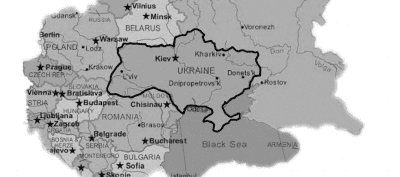Rice, Noodle, Fish: Matt Goulding Dreams of Not-Boring Travel Books
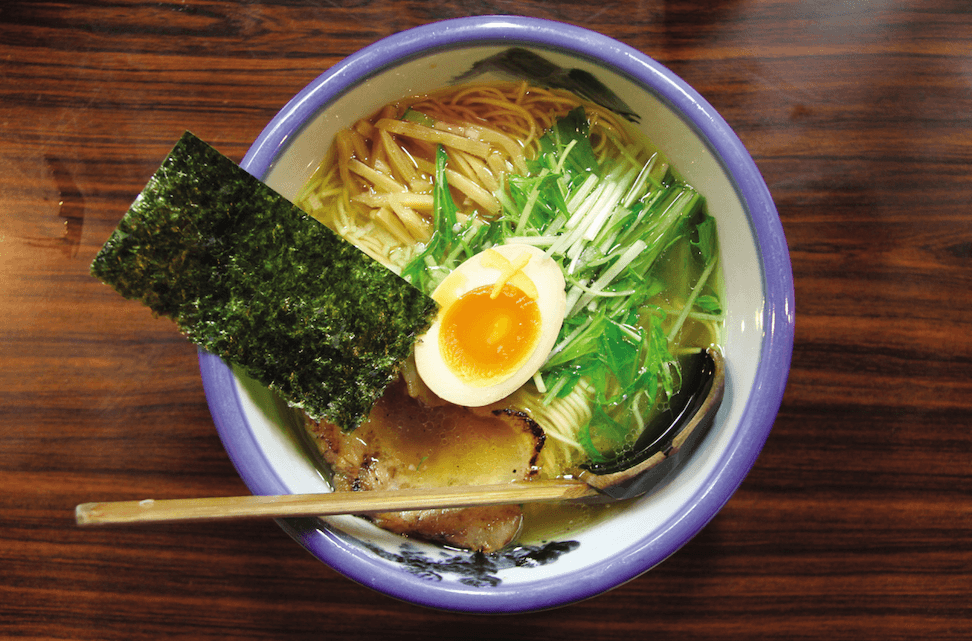

all photos via Rice, Noodle, Fish
In a previous life, journalist Matt Goulding was employed by national magazines for his deft touch with packaging, mainly for the front of book. In magazine editing parlance, the F.O.B is the section of the magazine right after the ads, fake letters, and the masthead. You likely read these pages quickly—or quickly skip over these pages—depending on your level of interest on the subject. Goulding’s job was to capture the reader’s interest No Matter What, by breaking down complex topics like best practices with chromium picolinate, or the etymology of Tijuana Dogs, into digestible and entertaining (though also shocking, scary, service-y) deep-fried information nuggets.
In his pioneering new book Rice, Noodle, Fish, Goulding—who edited at Men’s Health before leaving to co-found website Roads & Kingdoms—essentially packages the food-ways of Japan in an imaginative rethinking of the snoozy travel guide. Rick Steves, this is not.
There’s a visual breakdown for ordering at the fully immersive bar-plus-bites ceremony known as the izakaya, and a cheeky timeline for a night at a Tokyo love hotel. Spoiler: The minibar plays a big role. A Wagyu 101 delivers on the promise, and there’s a useful gaijin (white guy’s) glossary. In it we find out that oishi = delicious = “Said with a slight twinkle in the eye, it can melt all the barriers of language and culture into a warm broth of love for one’s fellow man.”
But while the book excels at the short and punchy, the real treat is when the author stretches things out a bit. “We want to provide a narrative and overall literary experience,” says Goulding recently over coffee at Brooklyn Roasting Company, a few blocks from the Roads & Kingdoms offices in DUMBO. “When I travel, I take a book with me not necessarily for a guide, but for foreplay. To get myself the right context.”
The author stresses that Rice, Noodle, Fish, which is the first in a series published by Anthony Bourdain’s imprint at Ecco, was written for both people planning to travel to Japan, and those simply interested in reading a colorful and well-reported dispatch from, say, a soba shrine in Hokkaido. “We wanted to disaggregate, to use a gross tech word, the travel guide experience,” says the author.
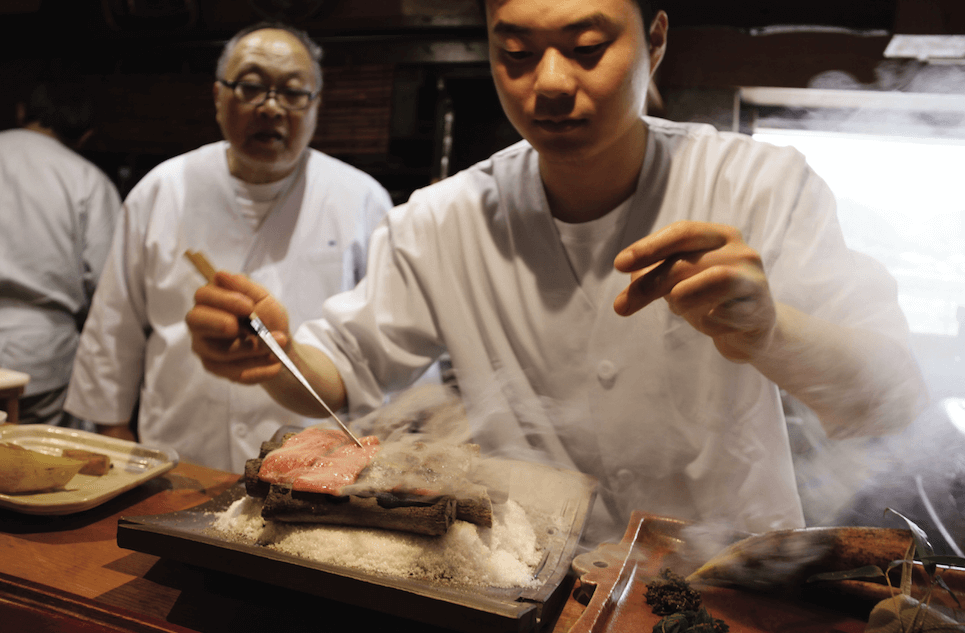

Japan’s meticulous food culture is no secret, with the award-winning documentary Jiro Dreams of Sushi being yet another reminder of the culture’s obsession to detail. In Japan, the concept is called shokunin, and is found in many points along the food chain—from the Chiba rice farmer selling his prized first crop, which is then polished at precisely 68 percent and sold at a Ginza depachika, and later washed, prepared and used in an insanely precise bite of ebi nigiri served down the street at an exclusive sushi counter. Goulding latches onto the concept of shokunin with the intensity of the subjects themselves, choosing to illuminate cities like Osaka and Hiroshima not through the aseptic 36-hours listicle model, but with colorfully reported stories of the ramen critic eating his way through the porky tonkotsu of Fukuoka, or the Guatemalan immigrant banging on the teppan like Roy Haynes, as his slowly learns to master okonomiaki in Hiroshima.
The idea for the book was sparked while Goulding was traveling through Japan and eating his way through the country on an extended honeymoon. “The book that I wanted, when I was traveling there, did not exist,” he says between sips of cortado. “There is so little information printed in English about Japan, so you really need it there. And I thought I could do it.”
Enter Anthony Bourdain, who Goulding had met years before over cava and Catalan snails while reporting a story on Spanish-American chef José Andrés. The two made a meaningful connection, and Bourdain would later cite the then little-known Roads & Kingdoms as one of the websites he enjoyed visiting. It’s no secret that through his documentary television programs, Bourdain and his production team at Zero Point Zero have basically reinvented the food travel show, recalibrating the content away from Burt Wolf fanny-packing around Rome (“stay here, eat there”) to more progressive storytelling. CNN’s Anthony Bourdain: Parts Unknown has won multiple Emmy awards, and the style has been copied over and over. But the same cannot be said for the printed travel guidebook industry, with long-established brands like Fodor’s and Lonely Planet still pumping out relatively voiceless and un-curated volumes at a record pace. Realizing this, Goulding had a pitch for Bourdain—which is reprinted nearly word-for-word in book’s introduction:
Dear Tony,
I’m writing you from a laundromat attached to an old teahouse down a dark alley in Kyoto. I’ve spent the past month eating my way south from Hokkaido — from the uni shrines of Hakodate to the okonomiyaki dens of Osaka. I’ve been invited to dine with the Sugimoto clan tonight, the oldest family in Kyoto, in their 300-year-old home with their 600-year-old recipes, and I need something decent to wear. So while five week’s worth of memories dissolve in the spin cycle, let me tell you about this idea I have…
Matt
The dispatches, which serve a bit as the book’s thesis and show two like-minded dudes giving great email, go back and forth for a while, like the comments section for a pretty kitsune soba Instagram. Bourdain reinforcing his committed Japanophile tendencies, with Goulding—writing from the windswept peninsula of Noto—conceding that there would be no escaping his obvious outsider point of view, and that embracing it would be key. Bourdain closes with a muscular line sculpted for the book jacket. “The world needs Roads & Kingdoms. It needs this book. Let’s give it to them.”
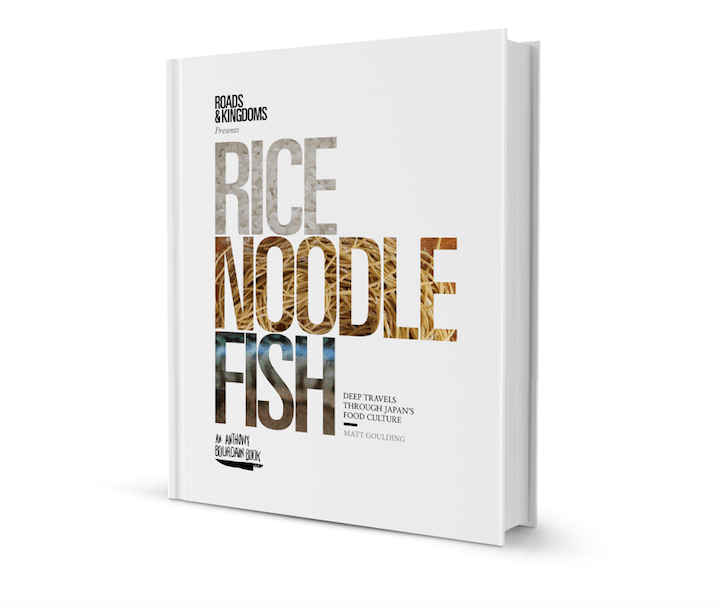

And like that the book was greenlighted, with Bourdain and his publisher providing this now 34-year-old author “1000 percent freedom” to craft what Goulding calls the “printed expression of Roads & Kingdoms.” But even with Bourdain’s soapbox growing skyward like an Abu Dhabi residential tower, the book business is a tough one to crack–especially when forced to readjust expectations.
“The food world, it’s a crowded world, it’s a formulaic world,” says Goulding before closing our talk. He’s in New York for only a couple days (he spends most of his year in Barcelona, with the rest of the time split between New York and North Carolina), and must return to Spain in a few days to complete the manuscript for the next guide, which is due at the end of the year, with publication expected for October 2016. While Goulding can’t say exactly how the rest of the series will hash out, or if he will personally writing all of the editions or not, he says he could see Roads & Kingdoms publishing guides for Mexico, Southeast Asia and Italy (“there’s a way to tell the Italy story that has not been told”).
“The beautiful thing about having your own company is that you can do what you want, and the beauty of having a guy like Tony behind you, is that it gives you the validation,” he says with a smile. And with brisk November sales and positive reviews pouring in, the people have spoken too. And they all need more uni in their lives.
For addresses and additional info, you can check out the interactive guides at: roadsandkingdoms.com/
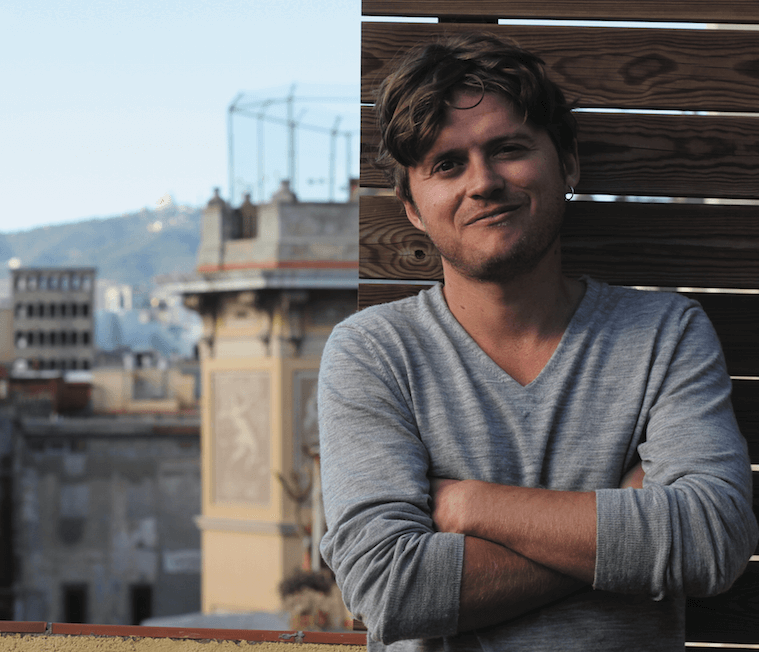

Matt Goulding
You might also like 
















